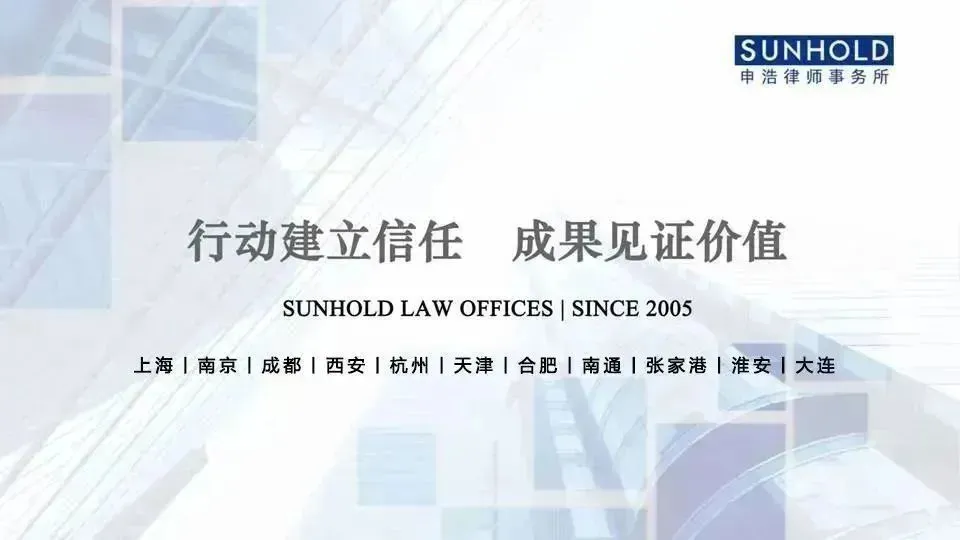




On November 14, 2021, hosted by Shanghai University Law School and led by Shanghai University ADR & Arbitration Institution, seminar on revision of 'Arbitration Law' and professional ethics of arbitrators was held successfully in Sunhold at 75F of Shanghai Tower.
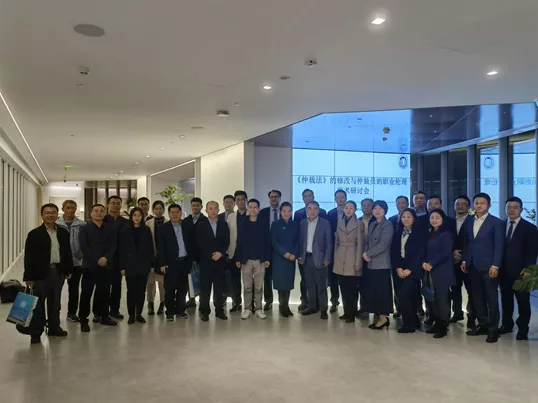
The opening ceremony was presided by Xueguo Wen, Professor of Shanghai University Law School and President of Shanghai University ADR and Arbitration Institute. Professor Wen Xueguo gave a brief introduction on relevant background, participants and agenda arrangement of the symposium. Shaohua Zheng, Vice headmaster of Shanghai University of Political Science and Law, Fengzhang Li, President of Shanghai University School of Law, Chunwei Lu, Deputy Director and Secretary-General of Shanghai Arbitration Commission, Tingfeng Tian, Director of Sunhold Law Firm and Shaoyang Gong, Case Handler of Shanghai Branch of China International Economic and Trade Arbitration Commission delivered keynote speeches.
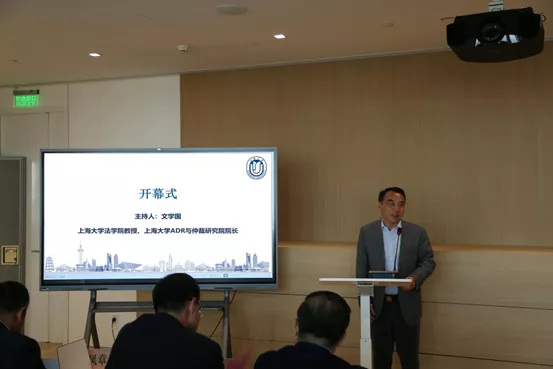
Vice headmaster Shaohua Zheng first analyzed the ethical issues of arbitrators from four dimensions. Firstly, from the market dimension, since the market is undoubtedly carried out by transactions. From the perspective of transaction or market, arbitrators should be equal and independent. Secondly, from the social dimension, people are gregarious animals, three in a crowd. And harmony is the core of society. Harmony means that from the social point of view, arbitrators should play the role of settling disputes. Thirdly, from the national dimension, arbitration is parallel to administration and justice. Arbitration has its independence. If the court wants to review the arbitration cases, it should also review the procedural issues rather than the substantive issues as much as possible. Fourthly, from the dimension of cultural thinking, the emergence of long-term culture and civilization has caused the arbitration to produce what we usually call folk and friendly issues. Among the four dimensions, Zheng believes that the civility, inclusiveness and friendliness of arbitration may be more important.
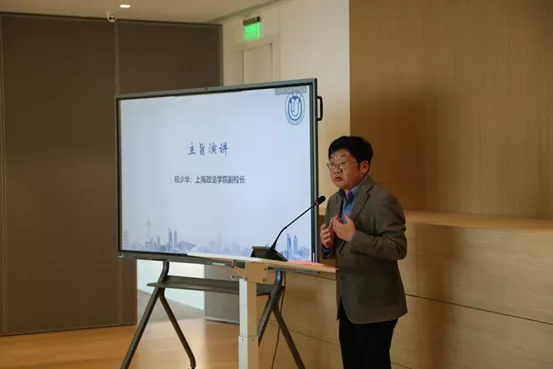
Deputy Director Chunwei Lu first mentioned that in the process of commercial arbitration, arbitrators play a very central and important role, both as the promoter and guider of the arbitration proceedings, and as an independent referee of the arbitral entity. Therefore, the arbitrator team is the most valuable asset for arbitration institutions. Secondly, Lu mentioned that the parties choose arbitration institutions generally consider from two angles : one is whether there is a professional and efficient arbitration rules can promote arbitration procedures ; second is whether there is a fair arbitration and high-quality arbitration team. Therefore, the revision of ' Arbitration Law ' and the issue of arbitrators ' professional ethics are of great practical significance. Subsequently, Deputy Director Lu Chunwei discussed on the theme of the meeting from three perspectives : the first is the current practice of arbitrator ethics. The second is the content involved in the newly issued “ Arbitration Law of the People ’ s Republic of China ( Amendment ) ( Draft ) ”. The third is the industry concept and practice, from which he made recommendations to improve the code of arbitrators’ acts. Deputy Director Lu said that the Shanghai Arbitration Commission will continue to adhere to the development directions: rule of law, specialization and international. Referring to the experience of commercial arbitration at home and abroad, we would continue to strengthen the construction, service and management of arbitrators to help improve the credibility of arbitration.
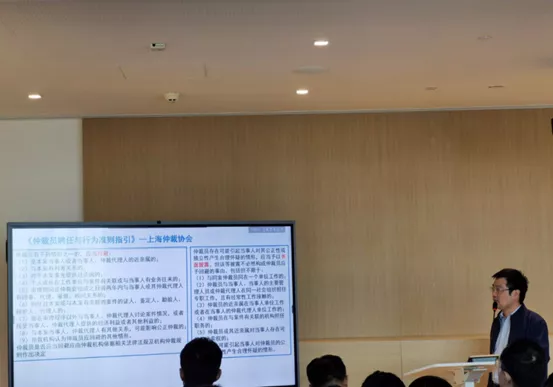
Gong Shaoyang, Case Handler of Shanghai Branch of China International Economic and Trade Arbitration Commission, introduced the topic of the speech by the sentence ' The quality of the arbitration depends on the quality of the arbitrators ‘.Mr.Gong divided the ethical and moral issues of the arbitrators into three dimensions : Firstly, how the arbitrators treat themselves. Secondly, how the arbitrators treat the parties. Thirdly, how the arbitrators treat the institutions, and how to deal with the relationship with the institution. Mr.Gong interpreted the provisions on the management of arbitrators, such as ' Code of Arbitrators ', ' Provisions on Arbitrator Qualifications ' and ' Provisions on the Investigation of Arbitrators ' Behaviors '. Mr. Gong also shared the problems of arbitration avoidance and arbitration confidentiality with participants based on the actual cases he encountered in his work.
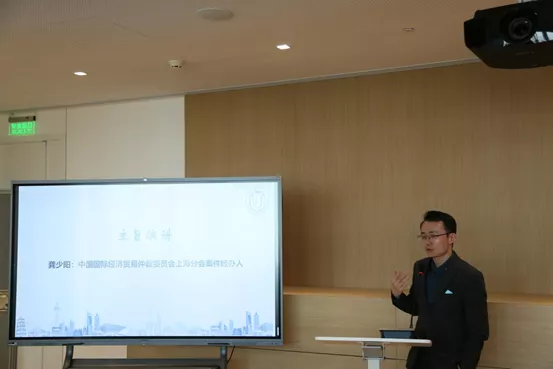
Director Tingfeng Tian put forward three insights on the theme of the conference combining his own working experience. The first point is that besides results, the parties will pay great attention to time and efficiency issues of the lawyers they entrust and, from his perspective, the slow issuance of the award was one of the problems in arbitration. In view of this, he expressed the hope for time on issuance of the award. The law should at least rule the time spent on the first draft issuance. Secondly, Director Tian put forward his own opinions on the non-execution of the Arbitration Law ( revised version ). He believed that the revision had practical significance in limiting the non-execution. The third point is about the revocation of arbitration. Director Tian said that in practice, arbitration is difficult to be revoked, so he hoped that the ' Arbitration Law of the People ' s Republic of China ( revised version ) ' could make some changes to this part. Finally, Director Tian also expressed his own opinions on the selection of arbitrators outside the arbitrator roster. He opposed the selection of arbitrators outside the arbitrator roster since he thought that there were great differences between arbitrators and local institutions in each place.
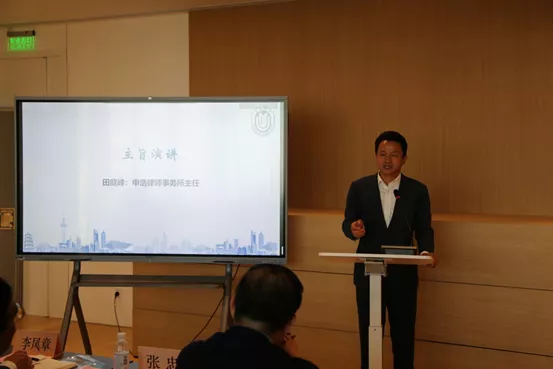
On behalf of Shanghai University Law School, President Fengzhang Li first expressed his gratitude to the leaders of the arbitration community who have long provided support and assistance to Shanghai University Law School, and expressed his hope that Shanghai University ADR and Arbitration Institute could do better and more solid work under the leadership of the President of the State of Literature. Secondly, President Li agreed with the characteristics of social autonomy embodied in the arbitration proposed by Vice-President Shaohua Zheng, and the arbitration reflected the self-settlement of social disputes. Finally, on the question of whether the parties could choose an arbitrator outside the roster of arbitrators, President Li said that he had a different view from Director Tian, and proposed that the selection of an arbitrator outside the roster of arbitrators had, to some extent, escaped the restrictions of institutional arbitration. And of course, while getting rid of institutional constraints, institutions also get rid of guarantees for individuals. Therefore, it is necessary to discuss the professional ethics of arbitrators from this perspective. President Li also expressed the hope that the Shanghai University Law School can have more cooperation with the leaders of the arbitration community, and provide more impetus for the further improvement of Shanghai University ADR and Arbitration Institute.
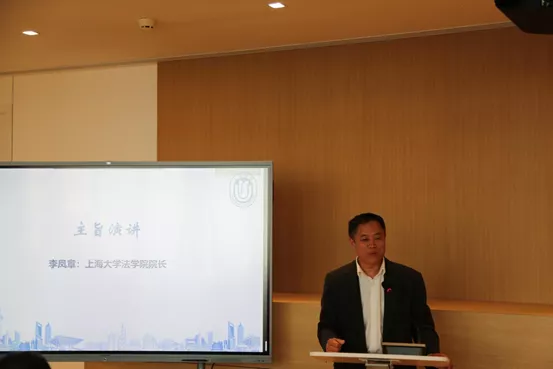
The first half of the keynote speech was presided over by Professor Qingwei Li of Shanghai University Law School, Zhang Xinyao, Case Handler of Shanghai Branch of China International Economic and Trade Arbitration Commission, Fuwen Zou, Vice President of Shanghai Lawyers Association, Director of Shanghai Haokun Law Firm and Arbitrator, Tao Du, President of East China University of Political Science and Law International Law School, Chuwei Zhang, Director of Shanghai Foreign Service Center and Arbitrator, Zhong Zhang, Legal Director of Shanghai Urban Construction Group Co. and Arbitrator, and Lingbin Hu, Deputy General Manager of PICC Legal Compliance Department of Risk Management Department and Arbitrator gave speeches successively.
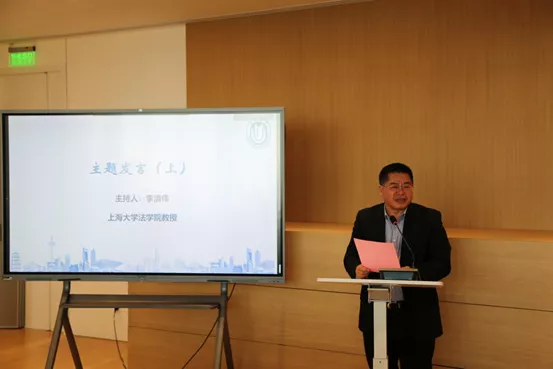
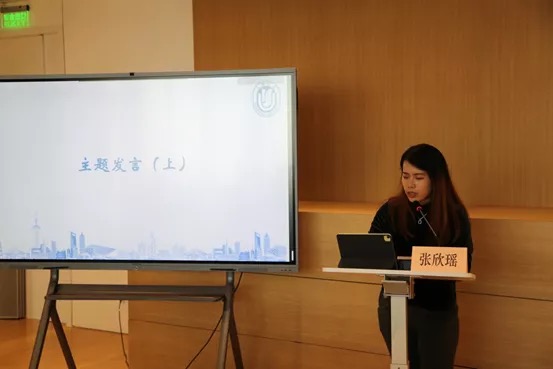
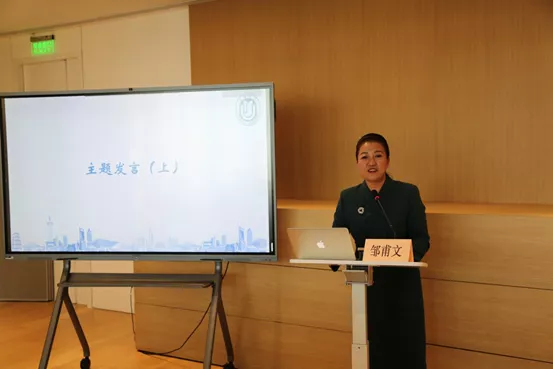
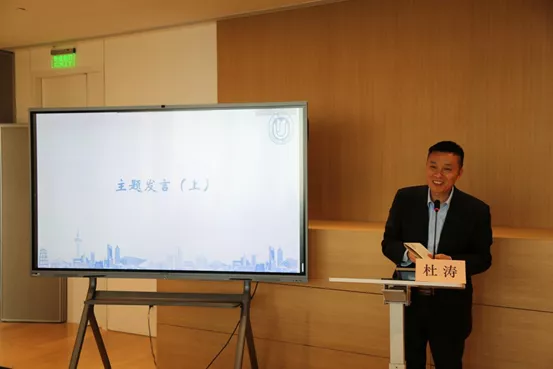
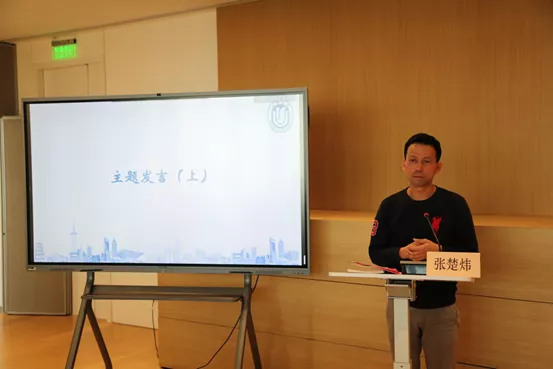
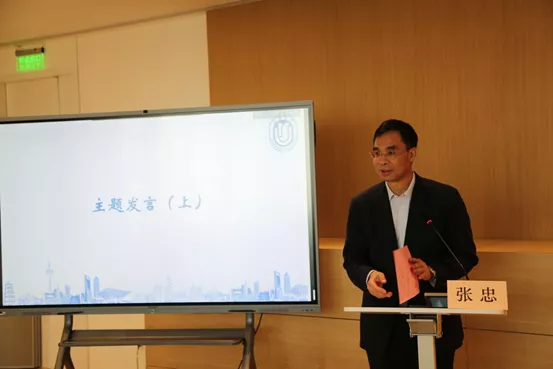
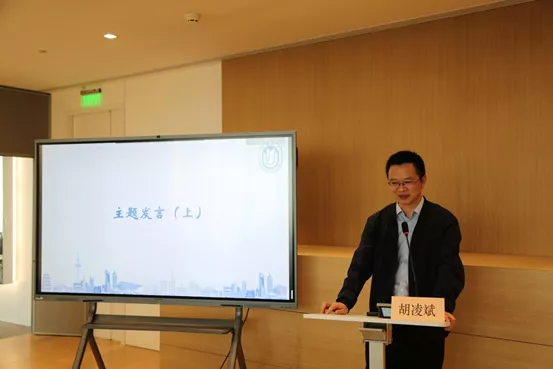
In the second half of the keynote speech, Dujuan Yuan, Associate Professor of Shanghai University Law School and Secretary-General ofShanghai University ADR & Arbitration Institution, Chunming Tan, Director of Shanghai Shoulun Law Firm and Arbitrator; Zheng Wang, Secretary-General of Nantong Arbitration Commission ; Zhongmin Yuan, Secretary of Shanghai Hongkou District Labour Union and Arbitrator; Weijun Yan, Professor of Shanghai International Studies University Law School and Arbitrator ; Haifeng Wang, Director of Shanghai Academy of Social Sciences International Law Department ; and Jin Zhao, Vice President of Donghang Fawu and Arbitrator delivered speeches successively.
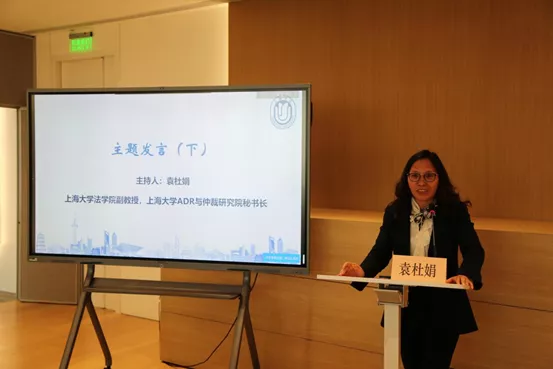 \
\
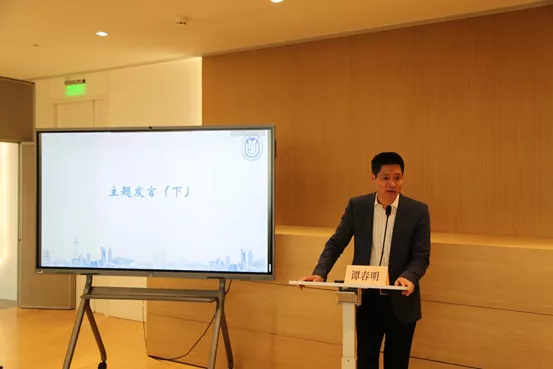
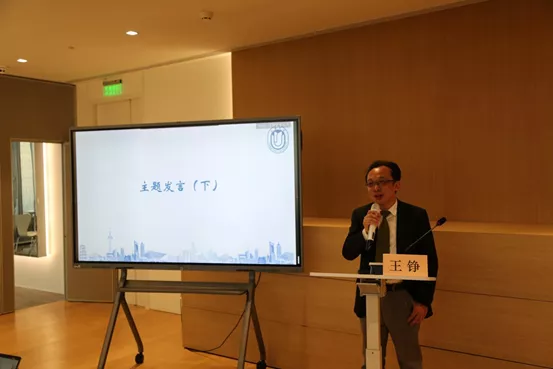
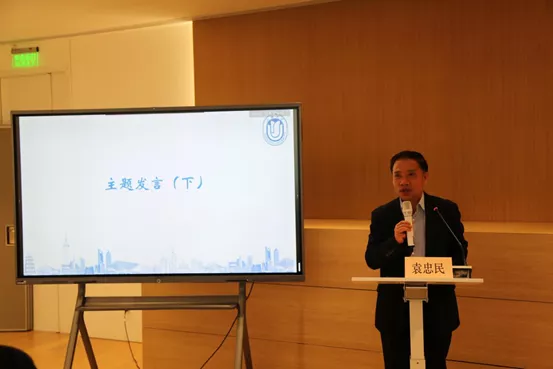
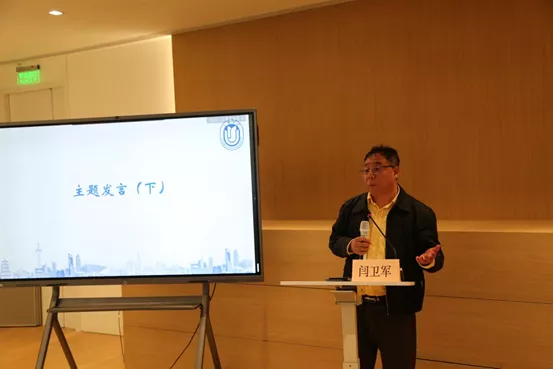
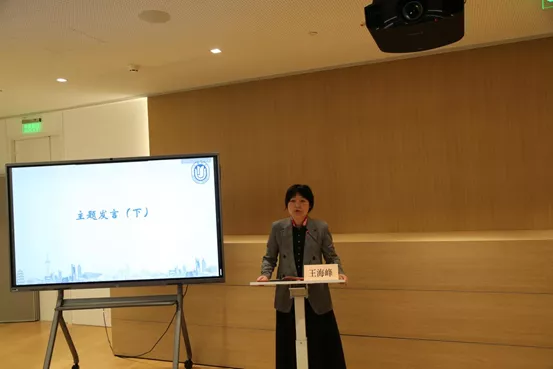
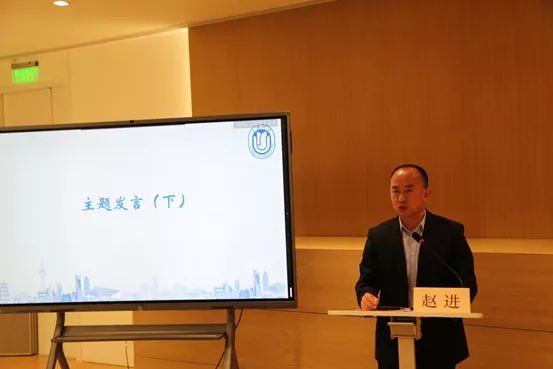
The free discussion session of this seminar was hosted by Professor Jinggen Chen, Deputy Director of Shanghai University School Affairs Office and Legal Affairs Office, Professor Jie Deng, Professor of Shanghai Normal University Law School, Huigang Mao, Partner of Jinmao Law Firm and Arbitrator, Ping Zhao, Partner of JT&N Law Firm Shanghai Office and Arbitrator, Zhen’an Zhang, Senior Partner of Shanghai Co-effort Law Firm and Arbitrator, and Jiong Liu, Senior Partner of Allbright Law Firm and Arbitrator actively participated in the free discussion.
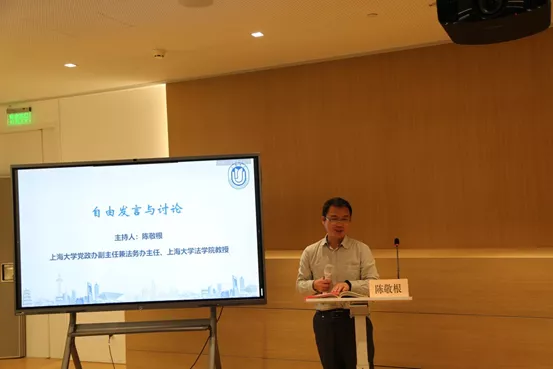
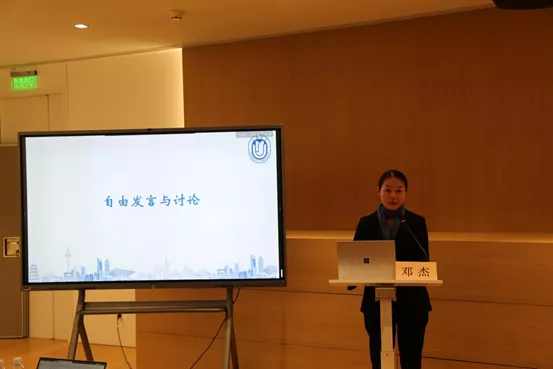
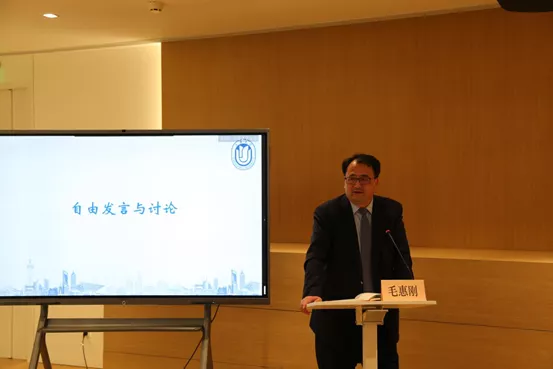
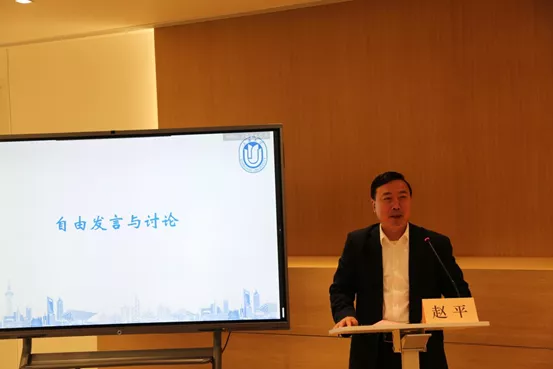
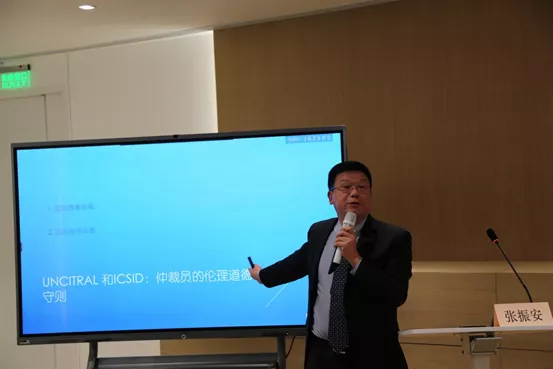
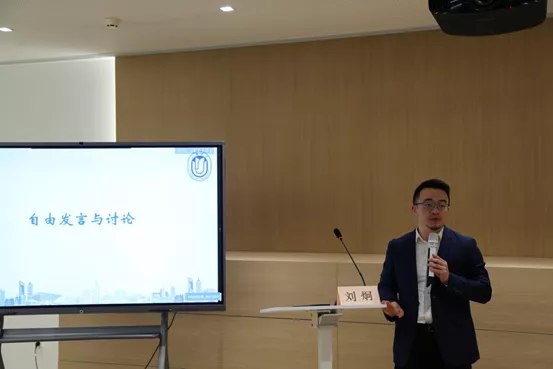
The seminar ended in a relaxed and pleasant atmosphere. The seminar focused on the revision of the ' Arbitration Law ' and the professional ethics of arbitrators, analyzed the existing problems in the professional ethics of arbitrators, and provided support for the sustained and healthy development of the arbitrator industry.
